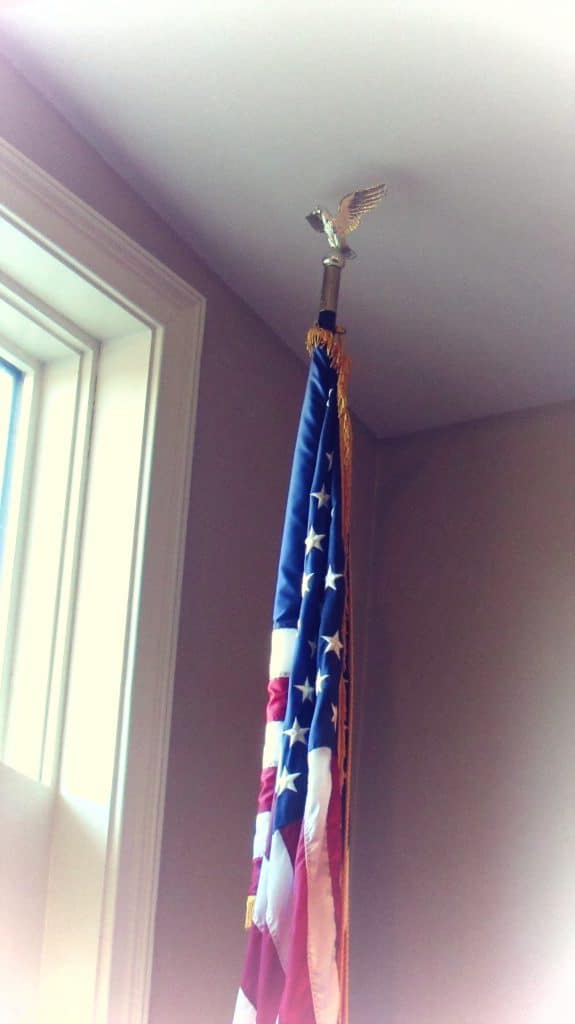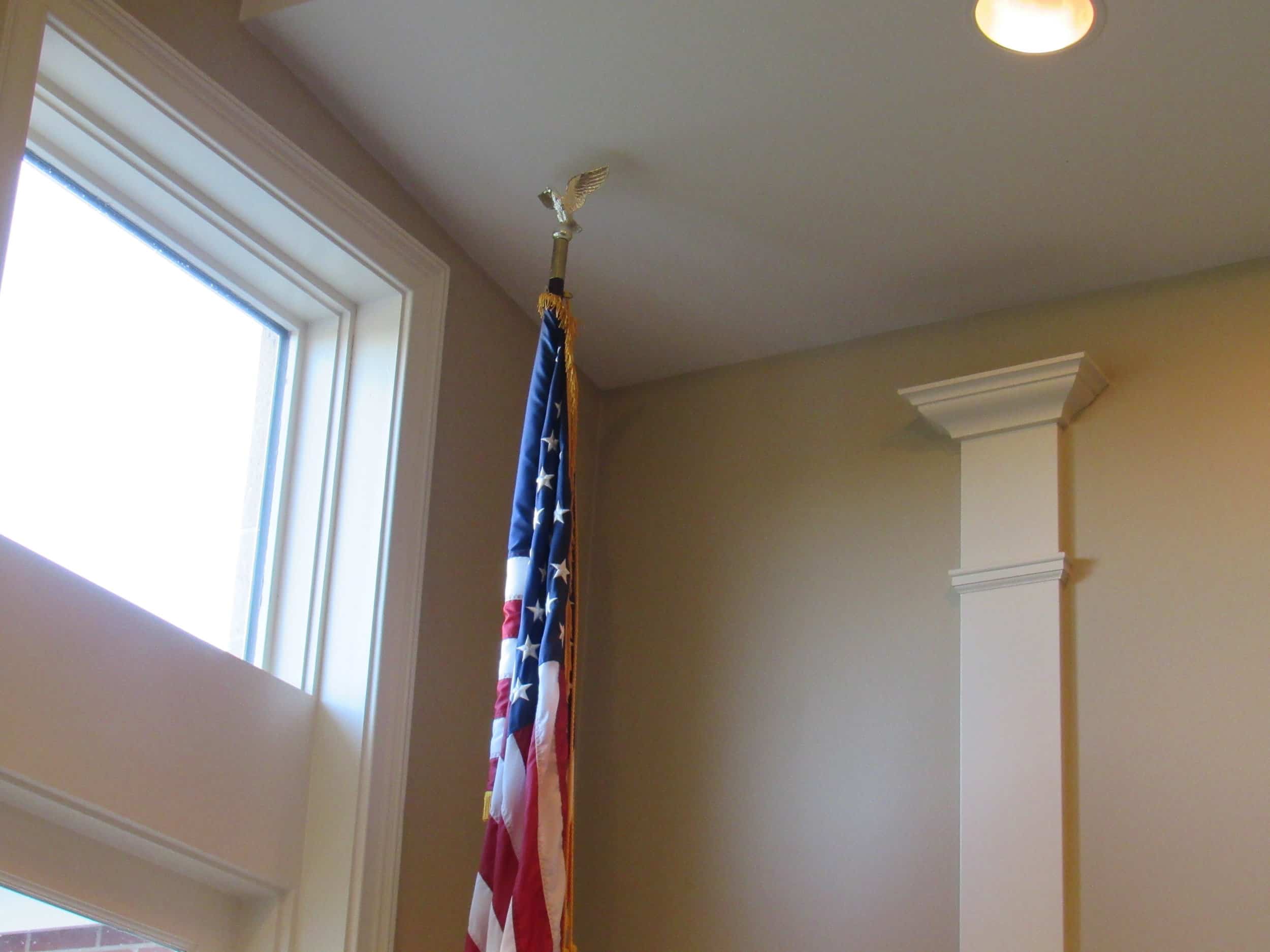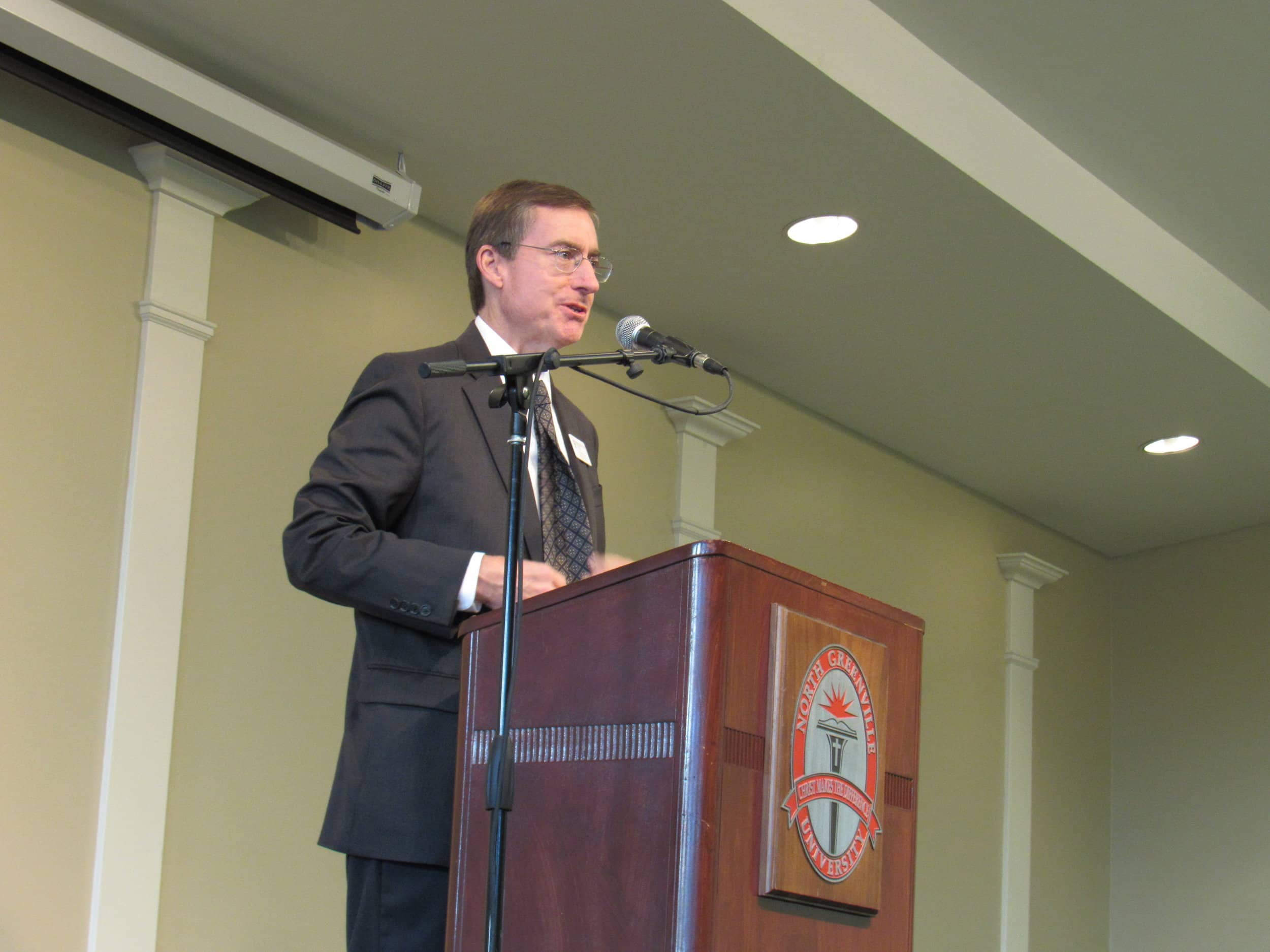
Does my vote count? Exploring the electoral college
Courtesy of Carson Myers.
Carson Myers, Staff Writer
When many Americans learn about the electoral college system for the first time, they feel betrayed. Millions of people who have faithfully gone to the voting booth for decades are unaware that they are not actually casting a vote for a candidate, but a slate of electors who will choose the president.
On Sept. 19, some North Greenville students attended a lecture about the electoral college given by two faculty members. Mark Roeder and David Tyner presented common arguments for and against the current election apparatus.
Roeder gave a historical background of the electoral college system. It was established in 1787 at the Constitutional Convention. It has been called un-democratic by many since its conception. Consider the words in Antifederalist Paper 72 written anonymously: “If any people are subjected to an authority which they have not thus actually chosen — even though they may have tamely submitted to it — yet it is not their legitimate government. They are wholly passive, and as far as they are so, are in a state of slavery.”
These sentiments published on March 1, 1788 are echoed every election cycle. Many college students remember the 2000 presidential election when George W. Bush (R) lost the popular vote against Albert Gore, Jr. (D) but was appointed president because he won more electoral college votes than his opponent. The 2000 election is commonly cited by opponents of the electoral college.
David Tyner. Courtesy of Carson Myers.
“Bush became president even though he did not win the popular vote,” said Tyner.
According to Tyner, another argument against the electoral college system is the inequality of power between states. Although all states have equal representation in the senate, small states have more per capita voting power than large states.
“Wyoming gets three electoral votes,” said Tyner. “California, which has 50 times the population of Wyoming only gets 18 times more than the popular vote.”
Proponents of the electoral college view it as a necessary means to keeping the two-party system intact. When businessman Ross Perot ran for president as a third party candidate in 1992, he secured almost 20 percent of the popular vote but was unable to gain a single electoral vote. Third party candidates create many voter factions which makes it much more difficult for any candidate to win the election.
Tyner did not explicitly support or denounce the electoral college system, leaving it up to students to decide whether they agree with it or not.
“Is it an un-democratic holdover from the colonial era, or is it a necessary and useful device for selecting the president?” asked Tyner. “That’s up to you.”


